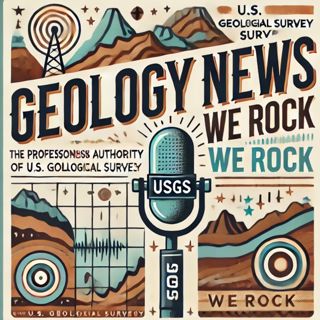The international geological surveys of the U.S., Australia, and Canada have released significant updates to their shared database on mineral ores, a move set to provide powerful insights into valuable byproduct minerals. What was once a repository of 7,300 samples has now expanded dramatically to encompass more than 25,000 samples. This major enhancement is not merely quantitative; it also includes the introduction of new criteria and the establishment of a formal process that enables any organization to contribute ore samples to the database.The expansion of the database represents a substantial leap forward in the field of geology and mineral exploration. The increased volume of samples offers a much richer dataset that promises to be a treasure trove of information for miners, researchers, and policy-makers. This comprehensive collection enables more accurate mapping of mineral resources, helps predict geological trends, and facilitates the discovery of previously overlooked byproducts that can be economically valuable.The new criteria introduced for sample inclusion ensure that the data maintained in the database is of the highest quality and relevance. This rigorous vetting process aims to standardize the type of information collected, including data points such as mineral composition, geolocation, and extraction methods. Such standardization is critical for meaningful comparisons and advanced analytical techniques, such as machine learning and predictive modeling.Perhaps the most groundbreaking aspect of these updates is the establishment of a formal process that welcomes contributions from any organization. This inclusive approach democratizes access to the database and encourages a wide range of stakeholders to participate. Universities, private companies, and other governmental agencies can now submit their own ore samples. This broadened participation is likely to diversify the types of minerals and geographic areas represented in the database, thereby enhancing its utility and comprehensiveness.In addition, this open contribution model fosters a collaborative environment that could accelerate scientific breakthroughs and technological advancements in mineral extraction and processing. The collective effort can lead to innovative solutions for sustainable mining practices, reducing environmental impact while maximizing the economic benefits of mineral resources.The expanded database and its new contribution framework could also have far-reaching implications for international trade and economic development. As countries look to secure reliable sources of essential and precious minerals, the enriched database could serve as a vital tool in navigating supply chains and mitigating geopolitical risks associated with critical mineral dependencies.In conclusion, the updates to the international mineral ore database by the geological surveys of the U.S., Australia, and Canada mark a significant milestone in the realm of geological research and mineral exploration. The dramatic increase in sample volume, coupled with new quality criteria and an inclusive contribution process, sets the stage for unprecedented insights and advancements. Researchers, industry professionals, and policymakers stand to benefit enormously from this enhanced resource, which promises to inform and drive the future of sustainable and efficient mineral exploitation.This content was created in partnership and with the help of Artificial Intelligence AI
22 Juli 20243min
